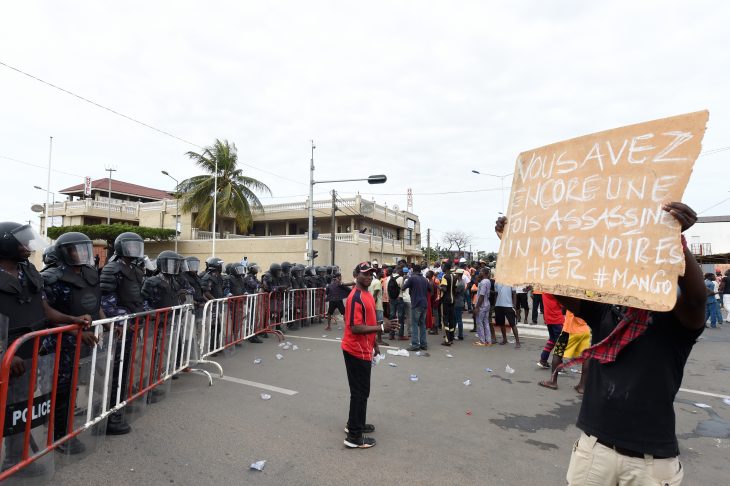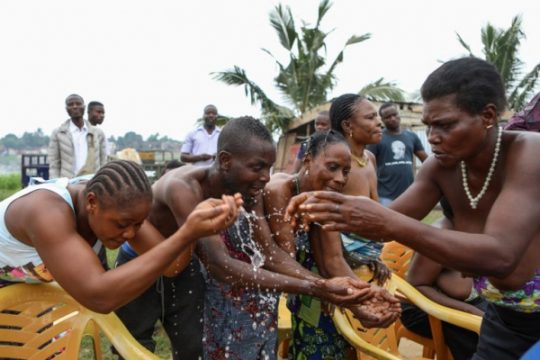As we saw this week, transitional justice still appears far from countries such as Togo, Egypt and Burundi, whose people are still struggling under authoritarian regimes disrespectful of human rights and fundamental freedoms.
In Togo, there is an open crisis between the dictatorial Gnassingbé dynasty that has been in power for more than 50 years and the population who aspire to democracy and rule of law. “In this small West African country, the factors for rebellion are being put in place,” writes our Lomé correspondent Maxime Domegni. “On the streets, the young people no longer hide their will to confront the authorities head-on. The Togolese people feel that they are at a turning point. The churches have lent their support to the people on the streets. Support for the dynasty is discreet. The government is holding on for now, counting on the army as usual and also support from the African Union and Economic Community of West African States (ECOWAS), organizations which tend to be indulgent and supportive of the leaders in power.”
The Togolese hope for better and ask themselves how long this support will continue. But for now, in this small country forgotten by the media and international community, Gnassingbé junior is clinging on to power and wants to make sure he keeps it.
In an enlightening article, French sociologist and Africa specialiast André Guichaoua explains how such rulers have managed to stay in power. “In Kinshasa, Kampala, Brazzaville, Luanda and Bujumbura, courageous opponents, usually with a favourable eye and sometimes active support from the population, have organized many protests,” writes Guichaoua. “They express the frustration and hopes of a generation critical of regimes clinging to power and whose authoritarianism has increased in proportion to the disillusion they have brought.” But, he says, “in the face of these aspirations for change, those in power have generally shown a great capacity for resistance and adaptation. They have prevailed almost everywhere, except so far in Kenya, where a second election is scheduled for October 26 after the surprise cancellation of the first one by the Supreme Court”. They have been adept at what the sociologist calls “a ritual show of backing democracy that is carefully stage-managed”.
Despite the limits and obstacles in the way of justice, “impunity remains the concern of these Presidents”, the article continues, because “even in these countries subjected to the most aggressive authoritarian rule, there are still hubs of structured resistance whose voices can be heard. One of their main tasks is to document the abuses. Their documentation will serve as evidence the day that justice is able to prevail”.
Human rights award
This is what Egyptian human rights activist Mohamed Zaree is trying to do. On Monday, he was awarded in Geneva the prestigious Martin Ennals Award for Human Rights Defenders. “Mohamed Zaree was unable to travel to Geneva to receive the Martin Ennals Award because of a travel ban, as he faces judicial investigations and the prospect of a possible 30-year prison sentence,” writes our Geneva correspondent Frédéric Burnand. “His `crime` is a ceaseless commitment to the freedoms considered by the regime of President Abdel Fattah al-Sisi as a threat to State security.”
According to Bahey El Din Hassan General Director of the Cairo Institute for Human Rights Studies of which Zaree is Egypt Country Director, “the situation in Egypt is unprecedented in terms of murders, torture, forced disappearances and repression of the media. President Abdel Fattah al-Sisi surpasses all his predecessors in terms of repression. He is targeting not only the Islamists but all civil society and spaces for freedom.” And here too this is happening without much reaction from the international community, he says, to the point that it serves the Islamic radicals.
But still there is Tunisia, last bastion of the Arab Spring, whose government has also benefitted from international and regional indulgence in the name of its supposed fight against the Islamists. This is a country where artists and civil society activists still have the courage to fight for others, including migrants. One example is Sadika Keskes, who has built glass coffins for those who died in the Mediterranean, or emergency doctor Reem Bouarouj, the first Arab woman to conduct rescue missions for migrants in the Mediterranean.






